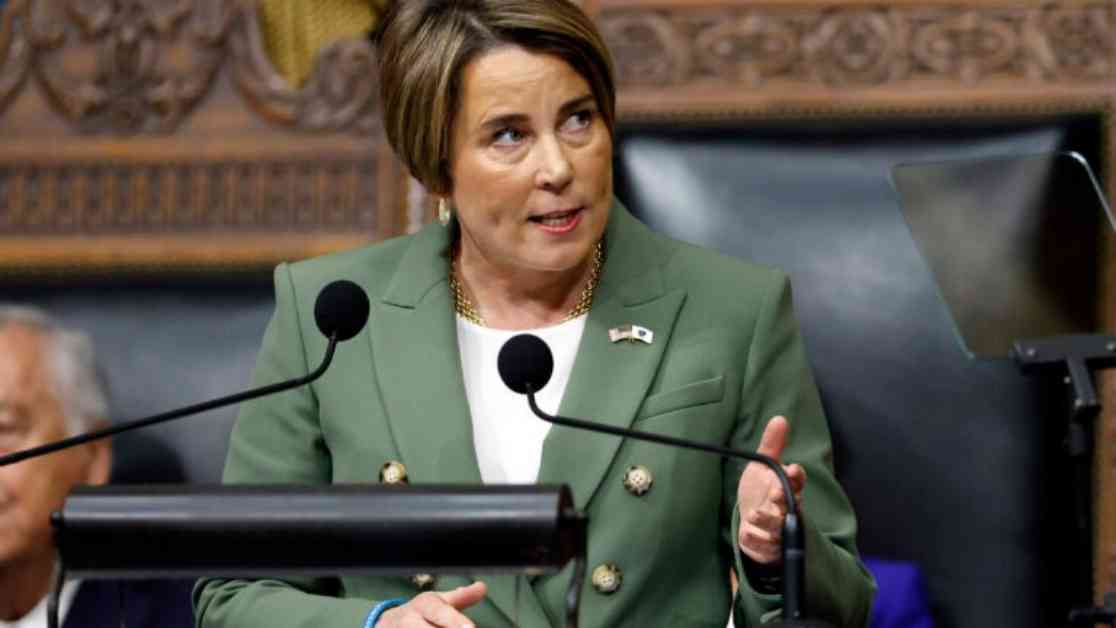The Municipal Empowerment Act, a bill allowing cities and towns to increase taxes on meals and lodging, has resurfaced in the political arena. The refiling of this legislation by the Gov. Maura Healey administration aims to grant local governments the power to raise taxes on essential items such as lodging and meals. This move is poised to potentially boost revenue for cities and towns across Massachusetts, providing them with more financial flexibility to fund crucial services without solely relying on property tax hikes.
Local Revenue Boost
Under the proposed changes, local leaders would have the authority to increase lodging taxes on hotels from 6% to 7%, and meal taxes from 0.75% to 1%. In the bustling city of Boston, officials could potentially raise taxes on lodging from 6.5% to 7.5%. Additionally, municipalities would be able to impose a surcharge of up to 5% on motor vehicle excise bills, directing the funds towards local stabilization funds for emergencies or unforeseen expenses. This strategic approach to revenue generation aims to alleviate the burden on property taxes, offering a more balanced financial solution for local communities.
The rationale behind empowering towns to implement these tax adjustments lies in enabling local officials to adequately fund essential services without resorting to steep property tax hikes. Gov. Healey emphasized the importance of providing high-quality services to Massachusetts residents, highlighting the need for communities to have the autonomy to tailor their fiscal strategies to meet the unique needs of their residents. By granting municipalities the flexibility to adjust specific taxes, the proposed legislation seeks to create a sustainable financial framework that supports local infrastructure, education, and public safety initiatives.
Political Landscape
The reintroduction of the Municipal Empowerment Act has reignited a familiar debate within the political sphere. While officials from various cities and the Massachusetts Municipal Association have voiced support for the bill, concerns have been raised by business owners and advocacy groups. Opponents fear that increased taxes on meals and lodging could deter customers, impacting local businesses and the overall economy. Last year, the bill faced opposition in the Democrat-controlled legislature, and similar challenges are expected as the legislation is reintroduced.
Despite the mixed reactions to the bill, supporters, including Mayor Michelle Wu, have expressed gratitude for the potential benefits it could bring to local communities. Mayor Wu underscored the importance of diversifying revenue streams and fostering partnerships between state and municipal governments to drive economic growth and infrastructure development. However, Beacon Hill’s Republicans have criticized the legislation for potentially shifting the financial burden onto residents instead of ensuring adequate state aid to support local services.
The proposed changes outlined in the bill extend beyond tax adjustments, encompassing provisions such as allowing hybrid public meetings, expediting the removal of double utility poles, and reforming procurement laws. These additional measures aim to streamline government operations, enhance public engagement, and address infrastructure challenges faced by municipalities. While some components of the initial bill, such as the flexibility for towns to set their own liquor license caps, remain on hold, the refiling of the Municipal Empowerment Act signals a renewed effort to empower local governments in shaping their financial futures.
As the debate surrounding the Municipal Empowerment Act unfolds, the implications of these proposed tax adjustments on local businesses, residents, and government services remain at the forefront of discussions. The balance between generating revenue for essential services and ensuring economic vitality in communities will be a key consideration for policymakers as they navigate the path forward. Stay informed on the latest developments by signing up for The Dish, our weekly food and drink newsletter, to engage with the evolving landscape of fiscal policy and local governance.






